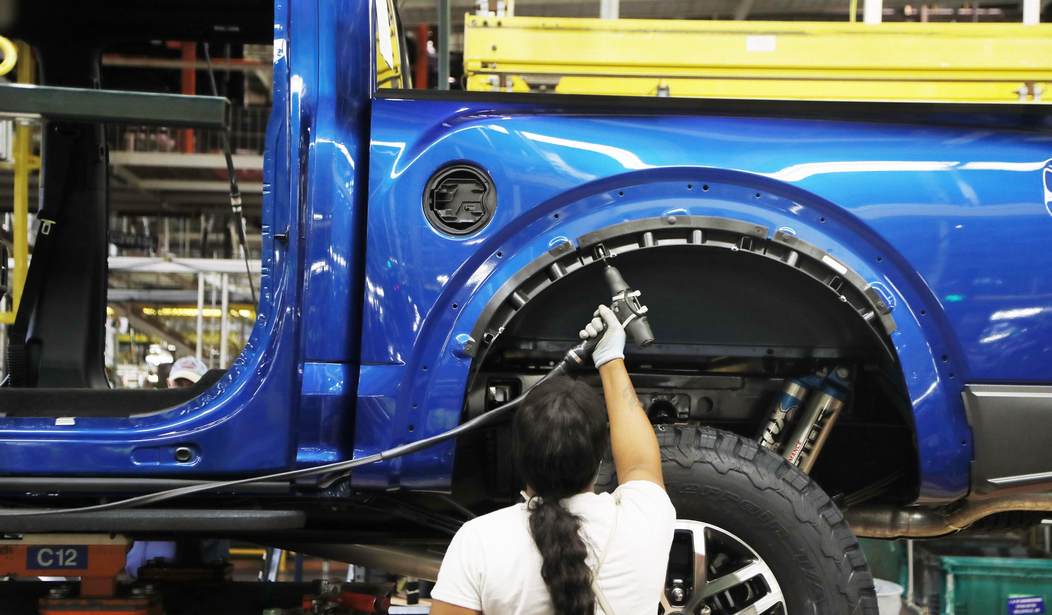Not too long ago, the automobile industry was all-in for electric vehicles (EVs). Falling in line with the Biden administration’s massive push for EVs and away from gas-powered cars, the Big Three and other manufacturers doubled down on EV production.
Part of the calculus was that car buyers would opt for the tax breaks and incentives that the government offered EV customers. That siren song didn’t lure many customers in. Eventually, the EV fad died out noticeably, and auto manufacturers are beginning to adjust to the market.
Ford is the latest example of an automaker that is distancing itself from the EV push. In April, I wrote about how Ford is changing its strategy, backing away from EVs so that it can provide “customers with the right mix of gas, hybrid, and electric vehicles based on demand today.”
The reason was simple: Ford saw its EV sales plummet, while its hybrid sales grew dramatically. It was time for a change, and Ford knew it.
Ford just made another announcement proving that it’s focusing its efforts on what customers want — and it ain’t electric. CNBC is reporting that the auto giant is changing an EV plant over to produce those trucks that the Biden administration doesn’t want you to buy.
“The new plans include investing about $3 billion to expand Super Duty production, including $2.3 billion at Ford’s Oakville Assembly Complex in Ontario, Canada, Ford said Thursday,” reports CNBC’s Michael Wayland. “The remaining investment will be used to increase production at supporting facilities in the U.S. and Canada, the company said.”
Related: Another Auto Manufacturer Joins the Chorus of Delaying the EV Push
Ford has plants in Ohio and Kentucky that already manufacture the larger Super Duty trucks, so adding Ontario to the mix demonstrates that the demand for bigger pickups is great enough to warrant switching an EV plant over. Ford is expecting the plant to build 100,000 trucks per year when the conversion is complete in 2026.
“Super Duty is a vital tool for businesses and people around the world and, even with our Kentucky Truck Plant and Ohio Assembly Plant running flat out, we can’t meet the demand,” said Ford CEO Jim Farley in a press release. “This move benefits our customers and supercharges our Ford Pro commercial business.”
Earlier this year, Farley said that all-electric trucks and SUVs were “never going to make money.” That’s why the company is pivoting toward smaller, more affordable EVs that will turn a profit. It’s also why Ford is concentrating on hybrid versions of its larger products.
Wayland wrote in June that Farley “also said Americans need to ‘get back in love’ with small cars instead of larger ones, a surprising statement given a majority or Ford’s profits come from trucks and considering American carmakers have historically had trouble making money on small models.”
“We have to start to get back in love with smaller vehicles. It’s super important for our society and for EV adoption,” Farley said at the time. “We are just in love with these monster vehicles, and I love them too, but it’s a major issue with weight.”
Sorry, but that’s not happening anytime soon.
Back in the spring, my PJ Media colleague and friend Stephen Green reminded us that “we're still far, far away from the end of dino-burning engines — and likely to stay that way for far longer than the grifters in the EV industry and the autocrats in Washington (and several states, too) would have you believe.” Ford is proving VodkaPundit — and others of us who have said the same things — right.










Join the conversation as a VIP Member